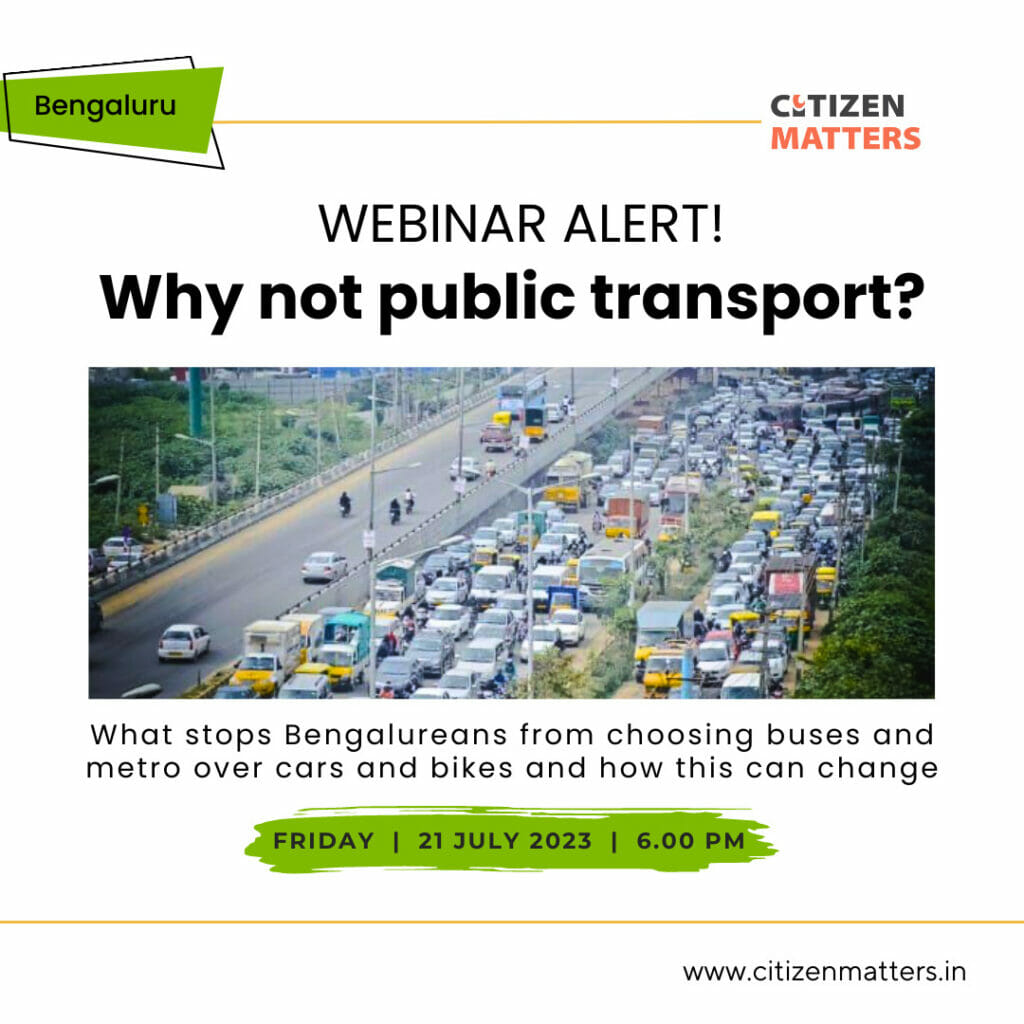The last phase of the Byappanahalli-KR Puram metro line is slated to be completed by the Bangalore Metro Rail Corporation Limited (BMRCL) mid-July or August. The Kengeri-Byappanahalli corridor will be connected to the Whitefield-KR Puram stretch. According to media reports, the ridership on the Whitefield-KR Puram stretch is about 28,000 passengers a day, and once the Purple Line is completed, the numbers are expected to rise significantly and travel time will be reduced too. All stakeholders, BMRCL, BMTC, Auto Unions, BTP, company associations like ORRCA, NASSCOM, and civil society groups, are being asked to get working together to get commuters to opt for travelling by metro at least two days a week.
But the question is will commuters be encouraged to take the metro to work? What needs to change for that to happen, should last mile connectivity be taken into consideration? Is the convenience of using cars and bikes over the metro and bus a reason for commuters not opting for public transport? Citizen Matters Bengaluru’s webinar: Why not public transport? will look at these trends across the city to understand what it will take for Bengalureans to shift to public transport-a viable solution to reduce traffic and pollution.
Read more: Public data enthusiasts evaluate access to public transport in Bengaluru
If you are interested in exploring these questions, and hearing experts and citizens from different walks analyse the issue and discuss solutions, join the discussion below, to be hosted by Citizen Matters Bengaluru this Friday (July 21st).

Event details:
- Topic: Why not public transport?
- Date: 21 July 2023
- Day: Friday
- Time: 6 pm onwards
- Registration link
Speakers
- Shreya Satish Mokhashi – Assistant Urban Planner at Directorate of Urban Land Transport
- Lalithamba Vishwanathaiah – former IT Professional and an advocate of sustainable transport
- Jayen Desai – VMware India, Founder – Sustainability Ecosystem Connect
- Srinivas Alavilli – WRI India
- Moderated by Meera K – co-founder, Citizen Matters